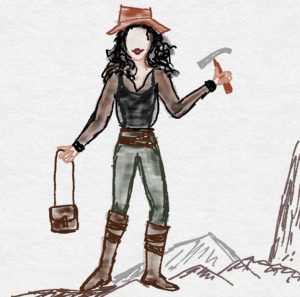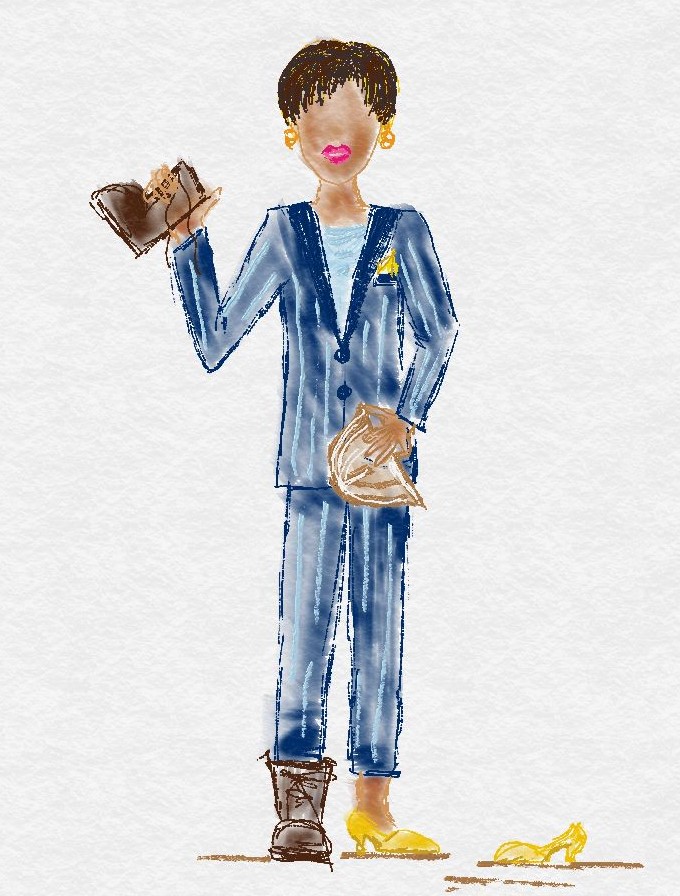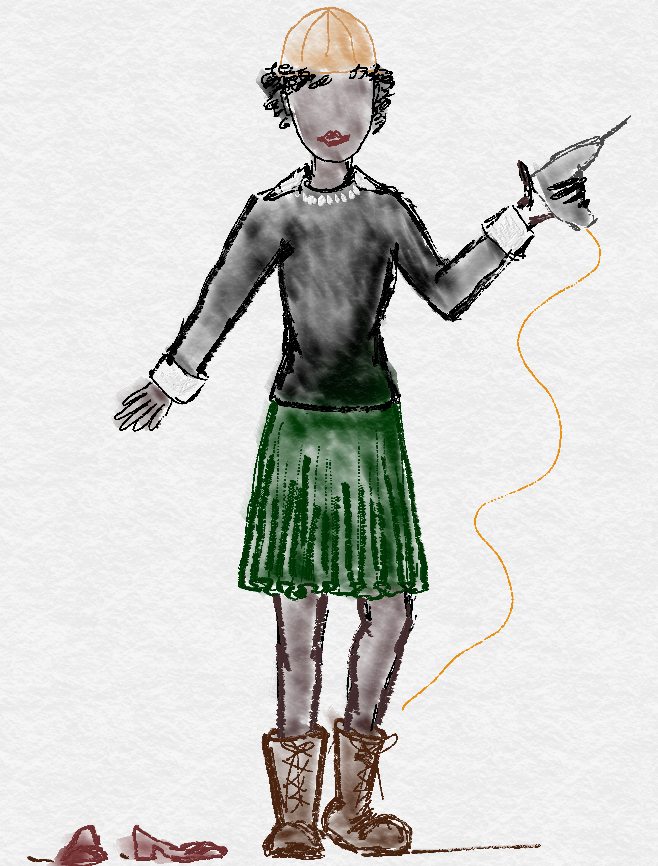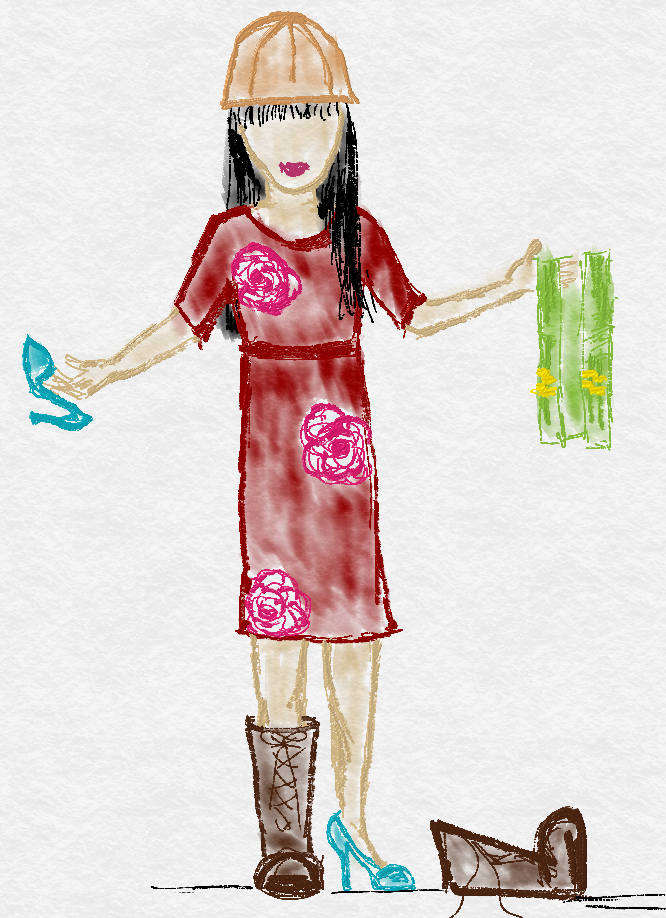Revolutions Don’t Happen When Everyone Is Happy
Are You Uncomfortable?

(Warning: This post contains a slang word that may be offensive to some. It should be offensive to all).
Last week I was sitting in an uncomfortable chair, being assaulted by a stranger’s cell phone conversation overflow, and mourning yet another precious few hours of my life that were forever lost while waiting for a flight at the Dallas-Fort Worth airport. I have spent enough time being distracted and bored in that place that I am convinced the ghost of my youthful enthusiasm roams the concourses when I’m not there.
Two airport workers, both men, took seats next to me on an apparent break. They chatted and laughed, calling out to other workers they knew as they walked past. One employee in particular strolled over to spend a good 10 minutes describing how badly the work was going where he was assigned. He moaned and groaned about delays and %^$#ups, repeatedly saying that he was sure the trouble could be traced back to the woman who was in charge of scheduling for the project. Finally finished complaining, he went to walk away and the first two guys tried to give him some words of encouragement. He shook them off and said, “Oh, it’s only going to get worse. You ever worked with a beaver before?”
I was shocked – only that he had the nerve to make such a statement in front of so many airline customers. Surely he would fear someone lodging a complaint?
On the other hand, his statement itself didn’t surprise me at all. It was not the first time, nor the fortieth time, I have heard some variation on a remark like this. And although “sensitivity training” has become commonplace in many workplaces, I can’t say that the frequency I hear such comments on construction sites and in engineering offices has decreased. The offenders now just preface their remarks with, “Well, I’ll get in trouble with the sensitivity training people if I say this, but….”
This is reality. Most women in our field can say they have experienced some degree of this type of behavior, if not worse. Many women in our field also can give lengthy recitations of less blatant, but similarly intended, slights, insults, and otherwise ugly occurrences. Thankfully, the landscape appears to be somewhat friendly for many women now, particularly younger women. No doubt corporate culture has evolved to an awareness of gender issues that has reduced the amount of discrimination, be it overt or subtle, that some women experience on a daily basis. But serious issues still persist, or we would not have this blog, and you would not be reading it. In order to eliminate those problems, we must be willing to be uncomfortable.
Several months ago, I was having dinner with a colleague, a seasoned professional. Someone else mentioned Underpinnings, and he said he was all for promoting women in our field. He then went on to say he had attended a dinner intended to introduce women to other professionals in their workplace. He said it was fine until two of the women started talking about dresses. Dresses! He was appalled. How could these women expect to be taken seriously if they acted like, well, women?
Normally, my Southern-bred manners would have required me to just gloss over this comment and change the subject. (Do not make dinner unpleasant under any circumstances). But I felt there was an important point to make with an influential person. So I asked him, “What’s wrong with talking about dresses? Do we have to pretend we’re not who we are in order to be accepted as engineers?” The question took him aback. He didn’t really have an answer. I could only hope that he would continue to ponder the issue after he left, coming to a more enlightened position on the matter.
The point is that ignorance and hostility will persist if we are not willing to make ourselves uncomfortable to effect change. This example was a mild one, but perhaps more in keeping with common occurrences many professional women experience. The more hostile conditions and situations require more aggressive action. If we as individuals are not willing to create a stir, or make someone else unhappy, or be labeled as a troublemaker, the offensive activities will continue. Cheerleading and commiseration only go so far. Acknowledging those who support us is great, but ignoring those who don’t won’t make them go away.
Certainly, the conditions for women in our field are better now than they were 25 years ago, and outstanding compared to what existed 50 years ago. But the man in the airport is proof that we’re not in Candyland yet. And if you think that his blatant misogyny and your issues with getting promoted in your office aren’t connected, you are putting your head in the sand.
Those of us in the Over 40 crowd can say that we have had to fight a lot of ugly battles to get where we are today. And those of you in the Under 40 crowd have a better set of circumstances as a result. I can say honestly that I once was locked in a job trailer with a large aggressive jobsite superintendent who had decided it was time I put out. I was told in a progress meeting in front of 30 men that I wasn’t going to decide what concrete was good or bad, “…just because you swish your ass in front of everyone.” And a former boss decided that sleeping with him was part of my project duties. Each of these situations caused me to have to take a stand and risk being labeled as a trouble maker. But each instance was wrong, and I hope my discomfort caused change that allowed some other women to go about their business without similar problems.
During a number of other times in my career, I chose to act as though there were no problems. I thought if I acknowledged the issues, it would give the opposition, or even my boss or my clients, a reason that a woman should not be in my position. I believed that if I concentrated on getting along with those who appeared to support me that I could eventually win everyone over to my side. But human nature is not so malleable, and men who are aggressively opposed to women having responsibility are not going to be persuaded by good manners and a plate of cookies. Sometimes you have to call out the injustice. Sometimes you have to declare war on the hate. It’s not pleasant, but real changes in cultural myopathy rarely are accompanied by teddy bears and candy canes. A committee meeting is not going to stop that knuckle-dragging evolutionary hiccup from referring to his female co-worker as a beaver. Revolutions don’t start when everyone is happy.
I truly appreciate all of the men who support us, and I’m grateful for the strides that have been made to create a professional environment that is more welcoming to women today. I also hope that those same women who are benefitting from struggles in the past are willing to go to bat for themselves and others who are in situations in the present that are still far from perfect. If you won’t speak up and say you don’t like ham sandwiches, don’t complain to your friends that lunch is never any good.



4 Responses to Revolutions Don’t Happen When Everyone Is Happy